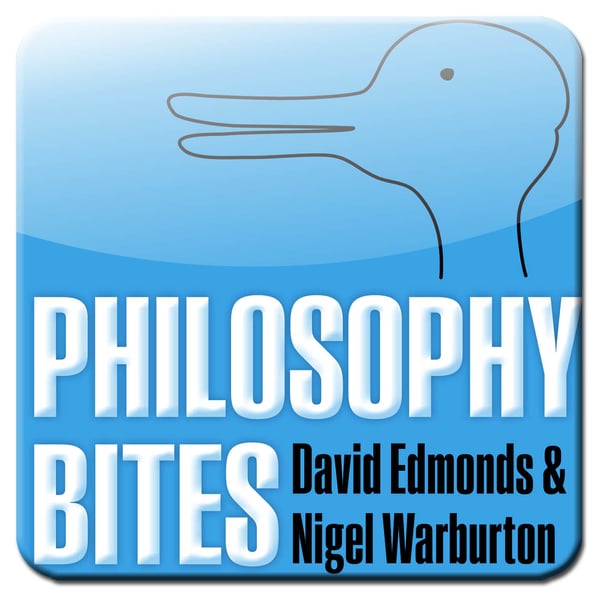Peter Singer on Human Use of Animals
Philosophy Bites
Nigel Warburton
4.6 • 2K Ratings
🗓️ 8 May 2008
⏱️ 17 minutes
🧾️ Download transcript
Summary
Transcript
Click on a timestamp to play from that location
| 0:00.0 | This is Ethel Bight's with me David Edmonds and me Nigel Warburton. |
| 0:08.0 | Ethics Bights is a series of interviews on applied ethics produced in association with the Open University. |
| 0:14.0 | For more information about Ethics Bites and about the Open University, |
| 0:18.0 | go to open2.net. |
| 0:20.0 | In 1975, animal liberation was published. In hindsight a seminal work of philosophy, marking |
| 0:31.4 | the birth of the modern animal rights movement, though its author spoke |
| 0:35.2 | not of rights per se, but as a utilitarian in terms, put crudely, of maximizing interests |
| 0:41.5 | or happiness. |
| 0:43.4 | The Australian author is now at Princeton and perhaps the world's most famous philosopher. |
| 0:48.3 | He argues that some animals have a higher moral status than some humans and that our disregard for animal suffering is a deplorable |
| 0:56.4 | moral blind spot. He also has contentious views on euthanasia, abortion, on infanticide, on civil disobedience and on how much we should give to charity. |
| 1:07.0 | But ethics bites spoke to Peter Singer about how humans should treat animals. |
| 1:12.0 | Peter Singer, welcome to ethics bites. |
| 1:15.0 | Thank you, Nigel. |
| 1:16.0 | It's good to be with you. |
| 1:17.0 | Now the topic we're going to focus on is the ethics of using animals, |
| 1:21.0 | both in food or as food and in research. |
| 1:24.0 | Before we start, it's probably best to get clear about what you understand by a person because you distinguish a person from a human being. |
| 1:31.0 | What's the difference? |
| 1:32.0 | A person for me is someone who is aware of their own |
| 1:36.1 | Existence over time is aware enough to realize that they're the same being who lived previously and who can expect to live into the future. |
| 1:44.6 | So most human beings are persons, but none of us were born persons, newborn infants are |
... |
Please login to see the full transcript.
Disclaimer: The podcast and artwork embedded on this page are from Nigel Warburton, and are the property of its owner and not affiliated with or endorsed by Tapesearch.
Generated transcripts are the property of Nigel Warburton and are distributed freely under the Fair Use doctrine. Transcripts generated by Tapesearch are not guaranteed to be accurate.
Copyright © Tapesearch 2025.

